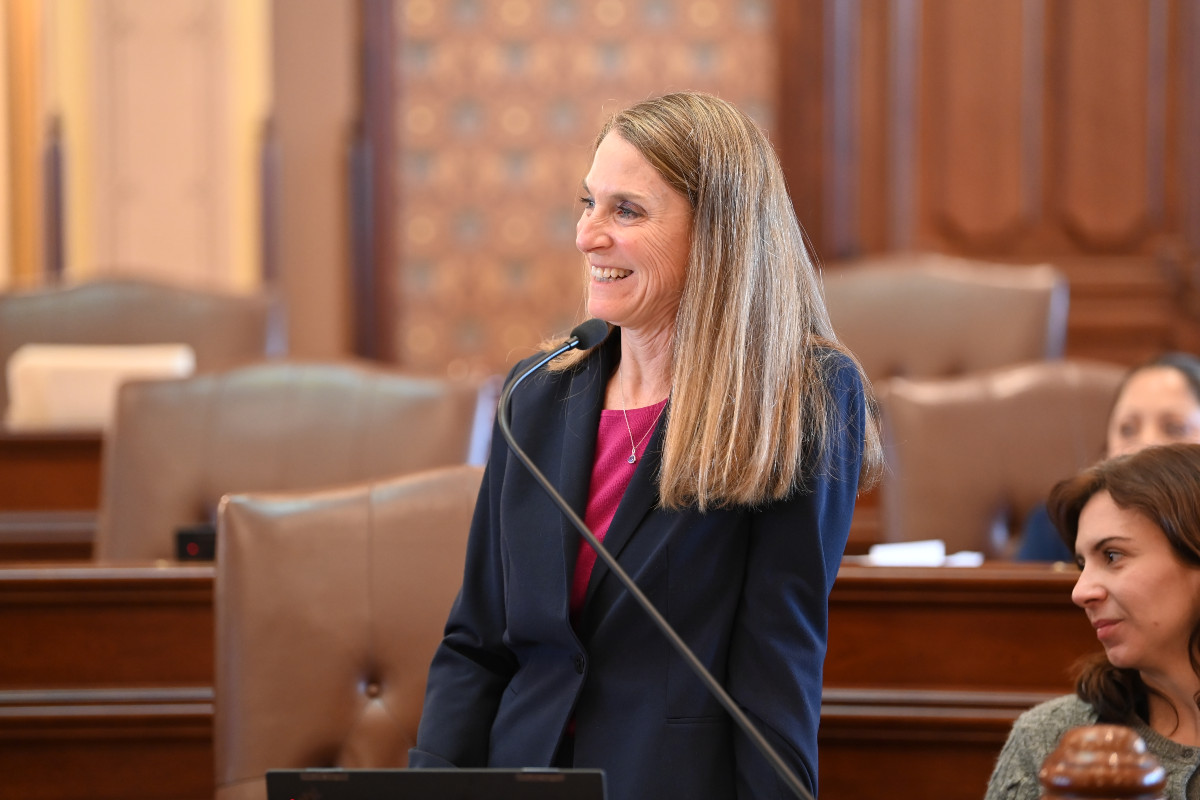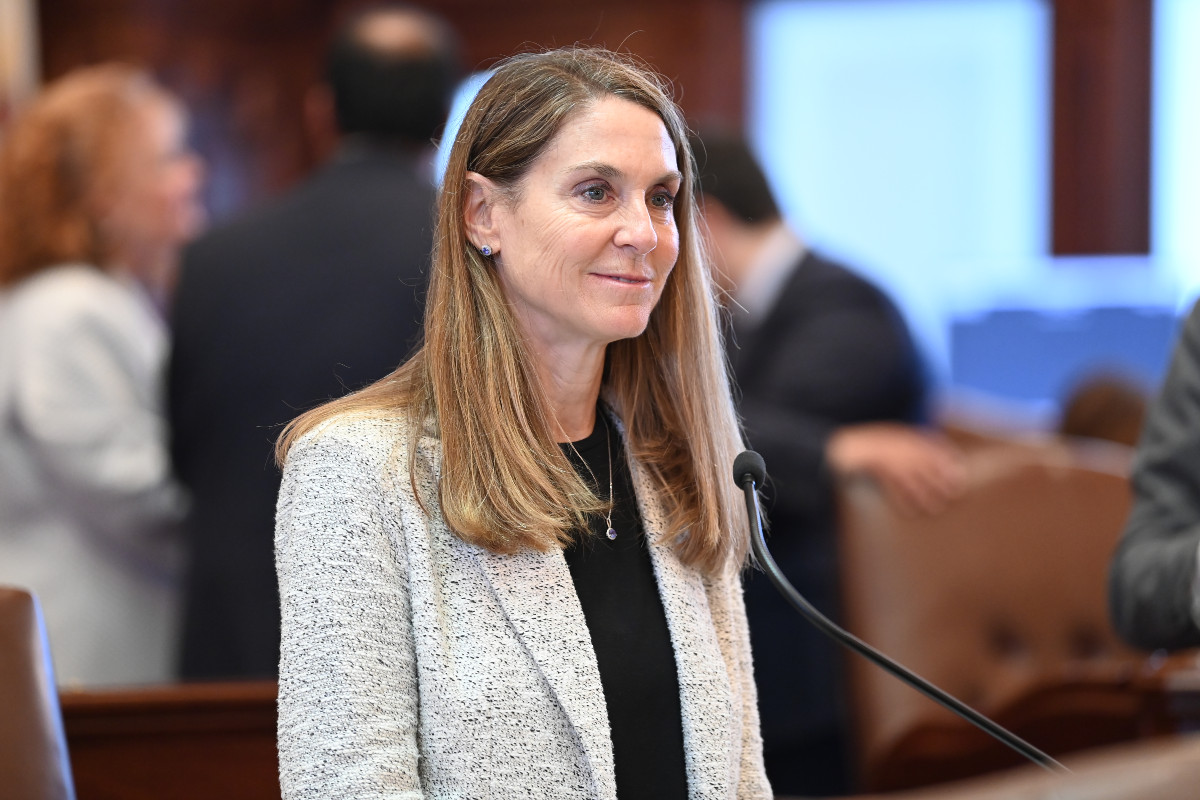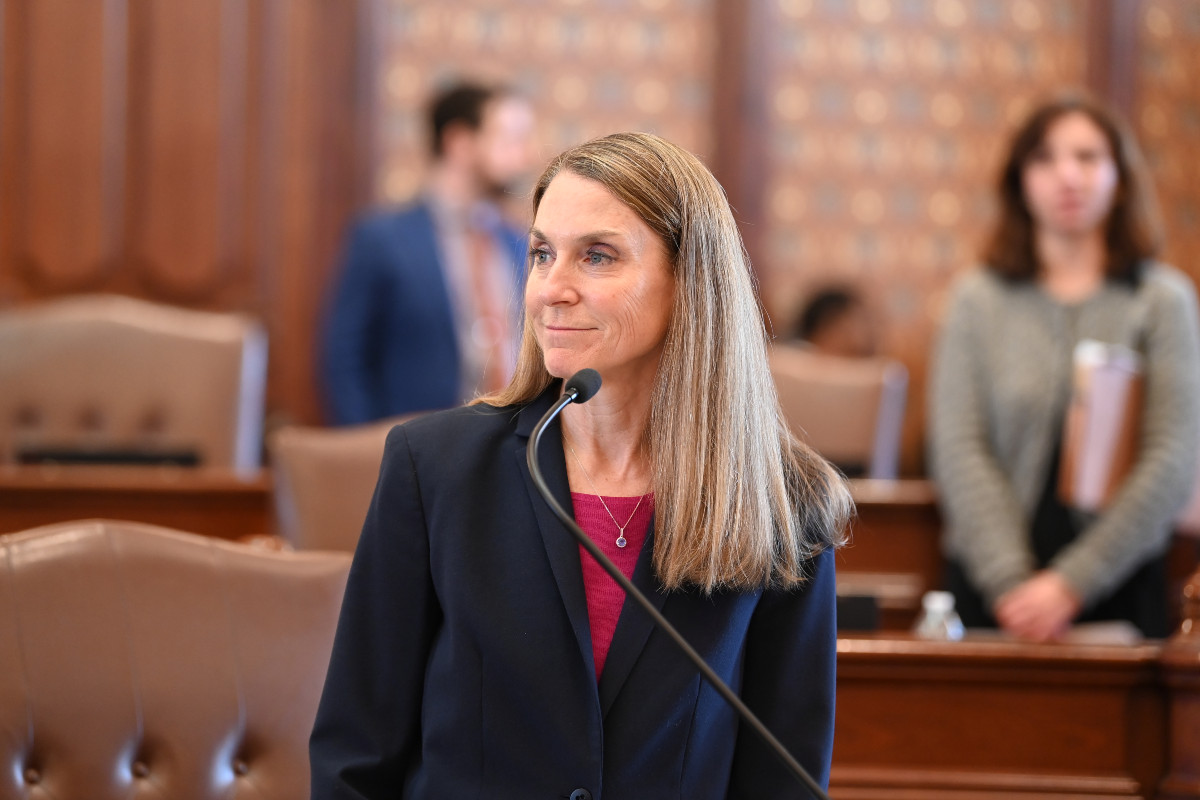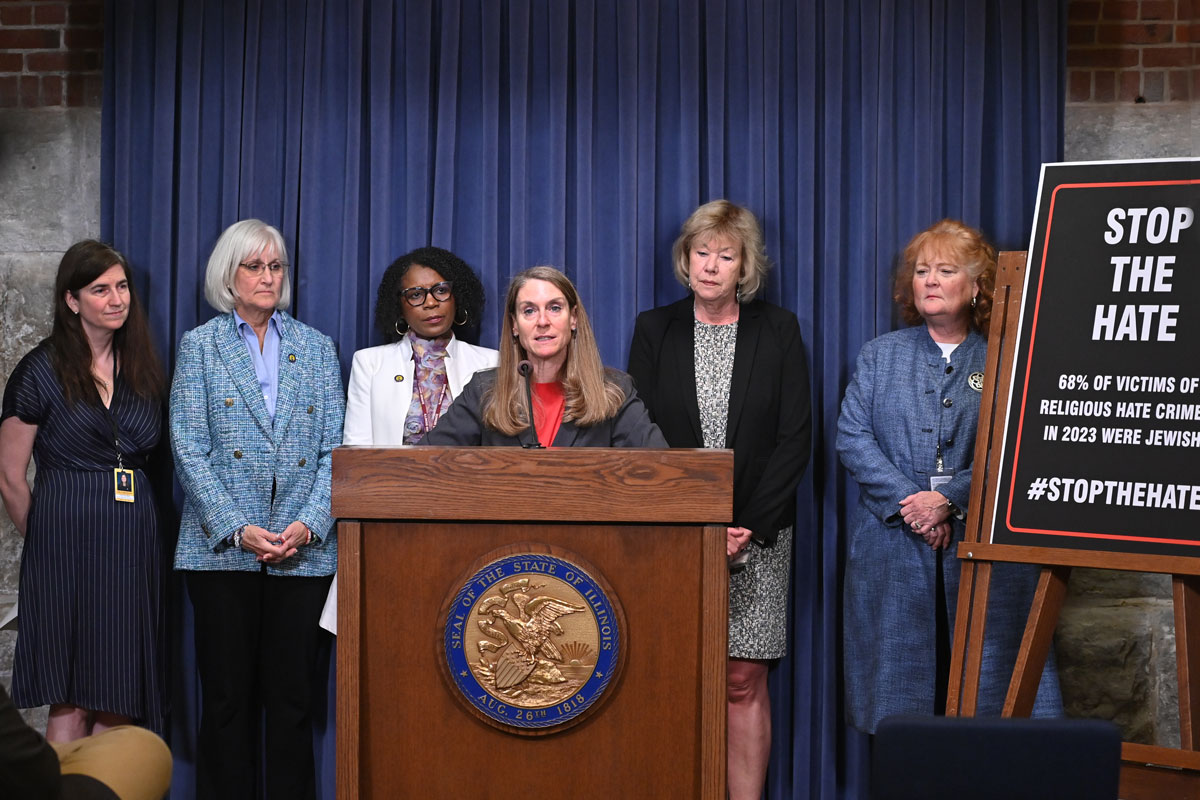- Details
- Category: Press Releases
 SPRINGFIELD – To further increase access to mental health treatment, State Senator Laura Fine passed a law extending the existing prior authorization ban to cover medically necessary outpatient mental health services.
SPRINGFIELD – To further increase access to mental health treatment, State Senator Laura Fine passed a law extending the existing prior authorization ban to cover medically necessary outpatient mental health services.
“Mental health care needs are equivalent to physical health care needs,” said Fine (D-Glenview). “This law breaks down barriers to access so patients can receive the help they need in a timely manner.”
Last year, the Healthcare Protection Act was signed into law, making health care more accessible and affordable for Illinoisans. The law banned step therapy requirements, prohibited prior authorization for inpatient mental health care at hospitals, banned junk insurance plans, and ended unchecked rate increases for large group insurance companies.
Read more: Fine law eliminates prior authorization, expanding access to mental health care
- Details
- Category: Press Releases
 SPRINGFIELD – To support victims and witnesses of workplace harassment and discrimination, State Senator Laura Fine championed a measure to clarify unlawful labor practices.
SPRINGFIELD – To support victims and witnesses of workplace harassment and discrimination, State Senator Laura Fine championed a measure to clarify unlawful labor practices.
“Bolstering the Illinois workforce and attracting new employees can only happen when workers have a fair work environment,” said Fine (D-Glenview). “In the event of harassment or discrimination against an employee, the victim and potential witnesses deserve to feel safe and taken seriously when reporting the issue.”
Current law provides essential protections by barring employers from requiring their workers to maintain confidentiality agreements regarding employment discrimination. Building on these efforts, Fine’s measure would include crucial safeguards for victims of harassment in the workplace by prohibiting employers from imposing unlawful restrictions on their employees through workplace confidentiality agreements.
Read more: Senator Fine passes measure investing in employee rights
- Details
- Category: Press Releases
 SPRINGFIELD – In strengthening the state’s carbon capture and sequestration practices, State Senator Laura Fine passed a measure to enforce and enhance further protections for property owners.
SPRINGFIELD – In strengthening the state’s carbon capture and sequestration practices, State Senator Laura Fine passed a measure to enforce and enhance further protections for property owners.
“Ensuring our environment and landowners are protected is a significant step forward in the growing carbon capture industry,” said Fine (D-Glenview). “As Illinois continues to lead the nation in sustainable solutions to combat pollution, we must have the strongest protections in place and safeguard the rights of landowners.”
Expanding on Senator Fine’s 2024 law that set environmental safety requirements at each stage of the carbon capture process, this legislation would enhance protections for property owners. The measure allows for recovery of attorney fees if a sequestration site landowner prevails in a lawsuit for damages to surface property. Additionally, the measure sets forth compensation provisions for owners of land above the underground pore space that is used to store carbon.
Read more: Senator Fine passes enhanced protections for carbon capture projects
- Details
- Category: Press Releases
 SPRINGFIELD – Standing in defense of Jewish communities across the nation and responding to the recent murder of two Israeli embassy staff members, State Senator Laura Fine shares the fears felt by Jews and called on fellow lawmakers and the public to stand together against antisemitism during a press conference on Tuesday.
SPRINGFIELD – Standing in defense of Jewish communities across the nation and responding to the recent murder of two Israeli embassy staff members, State Senator Laura Fine shares the fears felt by Jews and called on fellow lawmakers and the public to stand together against antisemitism during a press conference on Tuesday.
“I am horrified, saddened and heartbroken to address yet another act of terror against our Jewish community. I am also angry that the fears our Jewish community has shared for years have been met with silence, giving way to more violence and normalizing extremism,” said Fine (D-Glenview). “We must respond with urgency, communicate empathy between communities, and take the simple charge of supporting one another.”
Last Wednesday, Sarah Lynn Milgrim and Yaron Lischinsky, a couple who worked at the Israeli embassy, were leaving an event hosted by the American Jewish Committee to celebrate Jewish American Heritage Month at the Capital Jewish Museum in Washington, D.C. As they stood outside the museum, the young couple were mercilessly assassinated in the street by a gunman in an act of terror.
More Articles …
- Fine spearheads measure to fortify opioid overdose reporting
- Fine joins advocates at rally for environmental justice and equity
- Measure to provide neonatal intensive care coverage passes Senate, thanks to Fine
- Fine to expand safety rules and compensation for carbon capture and sequestration projects
Page 4 of 74







